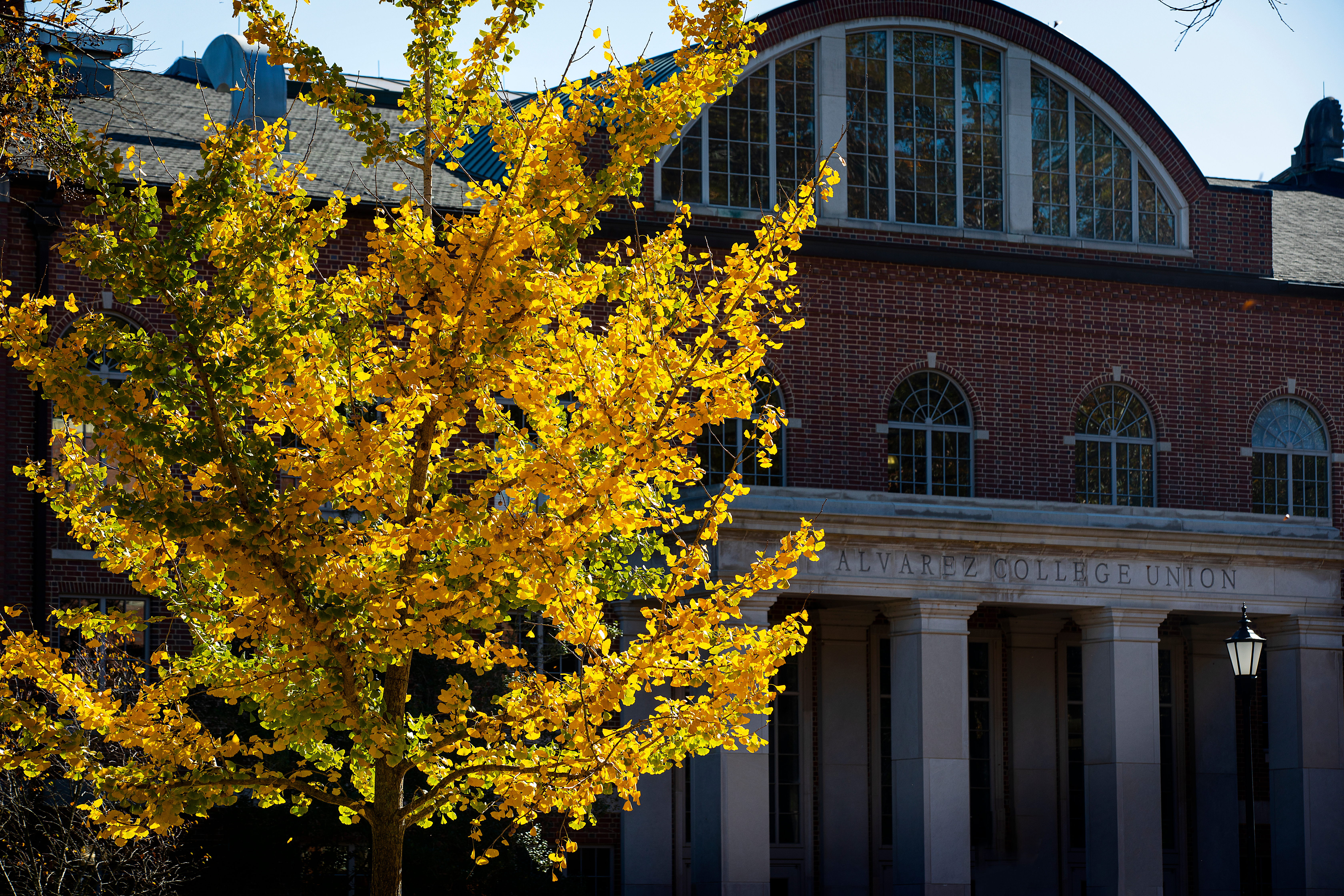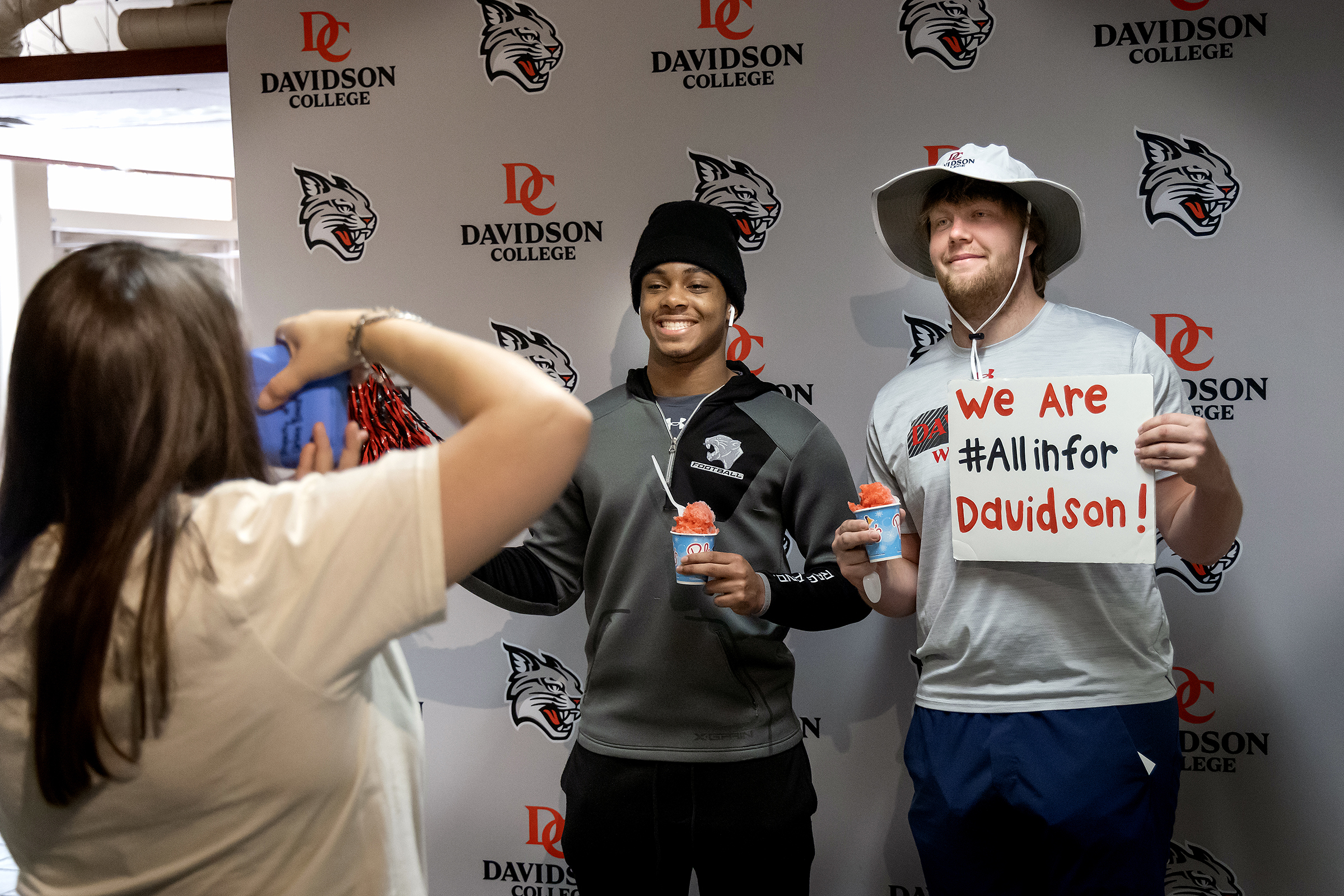‘Hidden Curriculum’ of Unwritten Rules and Unarticulated Expectations Threatens Student Success
March 2, 2021
- Author
- Jay Pfeifer
![Tony jack in front of C]chalkboard](/sites/default/files/styles/news_960x540/public/2021-03/speaker-tony-jack-profile2.jpg?h=91a1b362&itok=jFYL5jrS)
Author and Harvard University Professor Anthony Jack will deliver this year’s Wearn Lecture.
Anthony Abraham Jack, sociologist and assistant professor of education at Harvard University, is transforming the way colleges address diversity and inclusion.
His book, The Privileged Poor: How Elite Colleges are Failing Disadvantaged Students, which came out in paperback in 2020, drives home the point that while colleges across the country have attempted to enroll students from across the economic spectrum, they have struggled to support them once they arrive on campus. The drive for access has not led to inclusion.
Jack’s book explains the paths of two uniquely segregated groups. First, the “privileged poor”: students from low-income, diverse backgrounds who attended elite prep or boarding school before attending college. The second are who Jack calls the “doubly disadvantaged”—students who arrive from underprivileged backgrounds without prep or boarding school to soften their college transition. Although both groups come from economically disadvantaged backgrounds, the privileged poor have more cultural capital to navigate and succeed—in the college environment and beyond.
Jack shared some of his insights in anticipation of the March 11 Wearn Lecture, which is free and open to the public via Zoom.
What do colleges like Davidson need to change to be more supportive of first-generation students?
Broadly speaking, there are two categories: Colleges need to understand what assumptions they are making about what students know when they arrive on campus and what they can afford.
I write a lot about the “hidden curriculum,” which are those systems of unwritten rules and unsaid expectations that we all must abide by. And who has access to those rules is highly classed and even racialized. Colleges are so used to educating students from the top 20 percent of the income distribution that when they start to diversify, they don’t see how they are still catering to students from wealthy backgrounds or those who have experiences that only money can buy.
Do you think the pandemic will create any lasting changes—positive or negative—in creating genuinely inclusive institutions?
I hope so. Colleges now are faced with the reality of how much the home lives of their students affect them when they are on campus. Colleges are more aware now than they have been in a couple of generations about how precarious students’ financial and emotional lives can be.
COVID is an unerring mirror reflecting that ugliness. These are lessons that we are trying to learn.
What is the next step in creating an inclusive campus? Many schools have begun addressing the most basic needs, like food insecurity, but that seems like the tip of the iceberg.
We need to understand not just the prevalence of these problems but their nature. A food pantry would not get regularly used at Harvard in the same way as other schools—because Harvard undergraduates face food-insecurity at specific periods of time. It’s not just knowing that there’s a problem out there; it’s understanding how students are experiencing them.
We also need to make sure that in our celebrations of diversity, we are not highlighting difference. Do the services offered to students make them a part of campus or apart from campus? Things like mental health and career services can be hard to access if they are not completely integrated into campus life. We must meet students where they are, not where the administration thinks they should be.
Having resources is one thing. Getting students comfortable with using them is the trick.
How do you do that?
That’s the question. Sometimes it is doing very simple things. In The Privileged Poor, I push professors to define office hours on their syllabi and in their classes, so students have a sense not only of what they are but how to use them. I’ve since seen some professors actually give their students a tour of their office so they know where it is. The idea is just to demystify something that can seem so intimidating to students who have no exposure to the “hidden curriculum.” Faculty are no longer assuming that students know how to seek that support and they’re making it explicit that students should do it. It is expected.
If a professor is going to meet a student out of the office, say, for coffee, it is imperative that they make it known that students won’t have to pay. That way, students don’t have to grapple with the choice between coffee with a professor and something more essential.
Sometimes it’s the very small changes that make the biggest differences.



